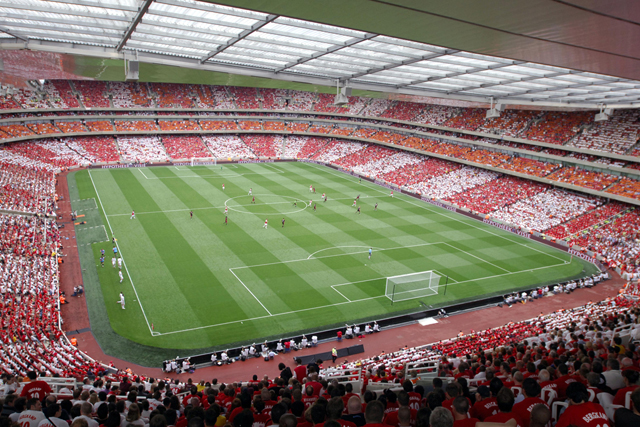It seems that diving, red cards and foul-mouthed tirades are all part of a typical match in football's Premier League. Couple this with the perception that players in England's top flight are over-paid and over-hyped, and it's little wonder that many consumers were less than enthusiastic about last month's start to the 2012/13 season.
The FA Community Shield (the curtain-raiser for the start of the Premier League season) was marred by yet another debate over a refereeing decision. Moreover, the game did not even sell out.
With the season now in full swing, the Premier League's reputation and the churlish attitude of some players are under an unprecedentedly harsh spotlight, particularly when viewed next to the glow left by the London 2012 Olympics. Over two weeks, inspirational athletes were celebrated for extraordinary achievements, and competitors generally displayed goodwill and respect to one another.
There have been calls for the Premier League players to raise their game by improving their reputations. The England manager Roy Hodgson has also made no secret of his desire for the country's players and fans to adopt a 'less spiteful' attitude to the game.
The Premier League is one of the UK's most popular exports with lucrative sponsorship deals in place until 2016, including a £40m-per-season agreement with worldwide title sponsor Barclays, which runs until 2016.
Nonetheless, with negative perceptions seeming to permanently dog the Premier League's players, what can the competition learn from the Olympics in terms of brand image?
We asked Jim Slater, managing director of Costa Enterprises and a former director of Sunderland AFC, and Ben Kay, joint chief executive at RKCR/Y&R, which created the idents for the BBC's Olympic coverage.
PREMIER LEAGUE STATS
Barclays is global title sponsor of the Premier League in a deal worth £120m that runs until 2016
£3.02bn - reported value of deals struck with Sky and BT for next season
Source: Premier League/media reports
 JIM SLATER, MANAGING DIRECTOR, COSTA ENTERPRISES (former director, Sunderland AFC)
JIM SLATER, MANAGING DIRECTOR, COSTA ENTERPRISES (former director, Sunderland AFC)
The Olympics cast a long shadow over the Premier League this summer - perhaps the only person to emerge with any credit in British football was John Terry's lawyer.
However, you can't compare 17 glorious days of podiums, patriotism and parties to the consistent excellence of the Premier League. This great British invention has set the global standard for 20 years. It is the world's most popular, exciting, and well-managed domestic league.
That said, it can be improved, and I would suggest adopting these 'three Cs' to do so:
REMEDY
- Corinthian spirit: officials must enforce the laws properly. Punish dissent and diving, and boorish behaviour will evaporate.
- Community: no sport invests more back into the community, either in percentage or absolute terms. This investment should be increased further; it makes a big difference to kids' lives and generates powerful, unobtrusive, word of mouth.
- Communication: it is in our media's DNA to sniff out the negative. The League should get sensible media training for all players and staff.
 BEN KAY, JOINT CHIEF EXECUTIVE, RKCR/Y&R (which created the idents for the BBC's Olympic coverage)
BEN KAY, JOINT CHIEF EXECUTIVE, RKCR/Y&R (which created the idents for the BBC's Olympic coverage)
The price of London 2012 sponsorship was less than half the cost of Premier League broadcasting rights; surely nothing can threaten the supremacy of the league?
Well, the government's promise to invest in UK Sport means there will be a clear path from playground to podium, one illuminated by inspirational athletes. Add sponsors' increasing appetite for long-term growth properties (see Team Sky) and it's not hard to see possible cracks.
While there remains a small, but visible, minority of football players and fans who see no distinction between passion and bile, employment and entitlement, or winning well and winning at any cost, the strength of the Premier League will be under threat.
REMEDY
- Get back to the sports' roots: football is democratic, universal and accessible.
- Be bolder: deduct points from teams for inappropriate player conduct.
- Build values, not just value: establish the brand as one that has a clear moral code.


